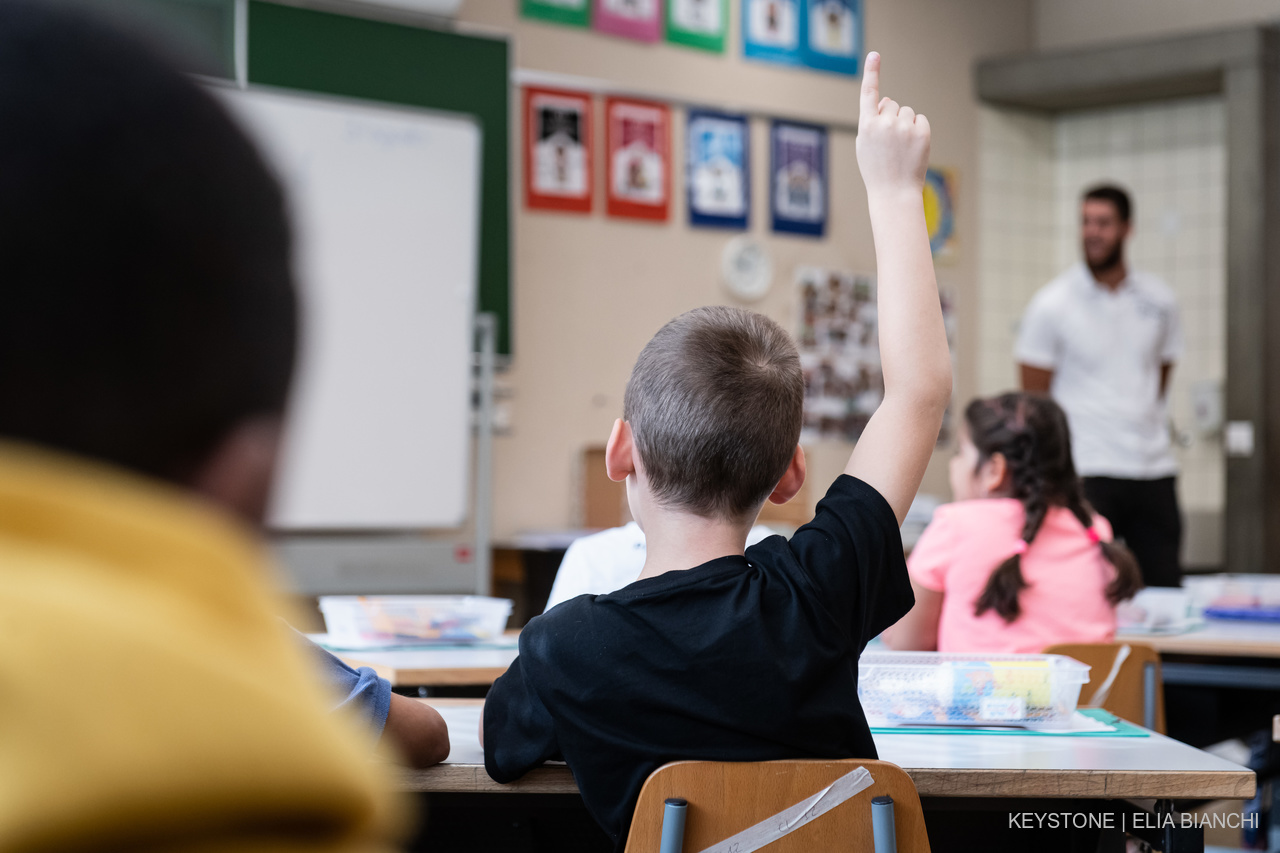
More Islamic lessons in Swiss schools?

Knowledge about Islam can prevent radicalisation, so says a new study which advises offering more Islamic lessons in public schools. But the hurdles are high.
With a “Salam aleikum”, teacher Nimetullah Veseli greets the pupils of year four in the Kirchacker school building. Veseli stands in front of the six boys and six girls in the classroom in Neuhausen, Schaffhausen. Wearing jeans and a white shirt, he explains the Islamic religious teachings.
Imam Nimetullah Veseli gives confession-oriented Islamic lessons at the public school. Confession-oriented means that the children learn about their own religion, in contrast to the inter-faith lessons in most primary school.
Normally, these confession-oriented Islamic lessons take place in mosques. It is an exception that it is offered in a public school. Only ten Swiss schools offer such lessons.
Religious education with quality control
A recent study by the universities of Lucerne and Fribourg corroborates the advantages of this type of teaching: “The school is a neutral place,” says study director Hansjörg Schmid. This also means that children from different Muslim backgrounds receive lessons together.
In addition, more emphasis is placed on instructive elements of its study at the school. “The Islamic teachers are obliged to present their concepts to the school,” says Schmid. “This makes quality control possible.”
The director of the Swiss Centre for Islam and Society at the University of Fribourg, together with three other researchers, has examined all the Islamic instructions offered at schools. The study shows that once the lessons are up and running, the feedback is very positive. Generally the criticism and resistance comes beforehand.
Expand the programme – but how?
The study also shows that the lessons availability are strongly dependent on individuals. Most of the proposals came about as a result of initiatives by imams or Muslim religious teachers. “More stability would be important,” says study director Hansjörg Schmid.
The classes in Kreuzlingen could be a model for future programmes. There, various mosque associations, an interreligious working group and the local parishes have jointly set up Islamic instruction, and an association has taken over the sponsorship.
The study recommends expanding confession-oriented Islamic instruction in public schools. But who will pay for it? At present, the programme is supported by voluntary work as well as parental contributions or subsidies from mosque associations.
Broad-based teachings with trained teachers are lacking. In addition, there is another hurdle as in most cantons, teaching requires recognition under public law.
“Salam aleikum” in chorus
If a comparable religious education as that of the Christian national churches is to be developed, the Muslim communities would first have to be recognised. This is a lengthy process.
But Hansjörg Schmid says, “A lot is possible at the level of pilot trials.” He therefore advises trying out as much as possible at a low-threshold level – as in Neuhausen. There, Imam Nimetullah Veseli ends the lesson with “Salam aleikum”: “What does that mean?” he wants to know from the fourth graders. “Peace be with you and with you,” they answer in chorus.

In compliance with the JTI standards
More: SWI swissinfo.ch certified by the Journalism Trust Initiative





























You can find an overview of ongoing debates with our journalists here . Please join us!
If you want to start a conversation about a topic raised in this article or want to report factual errors, email us at english@swissinfo.ch.